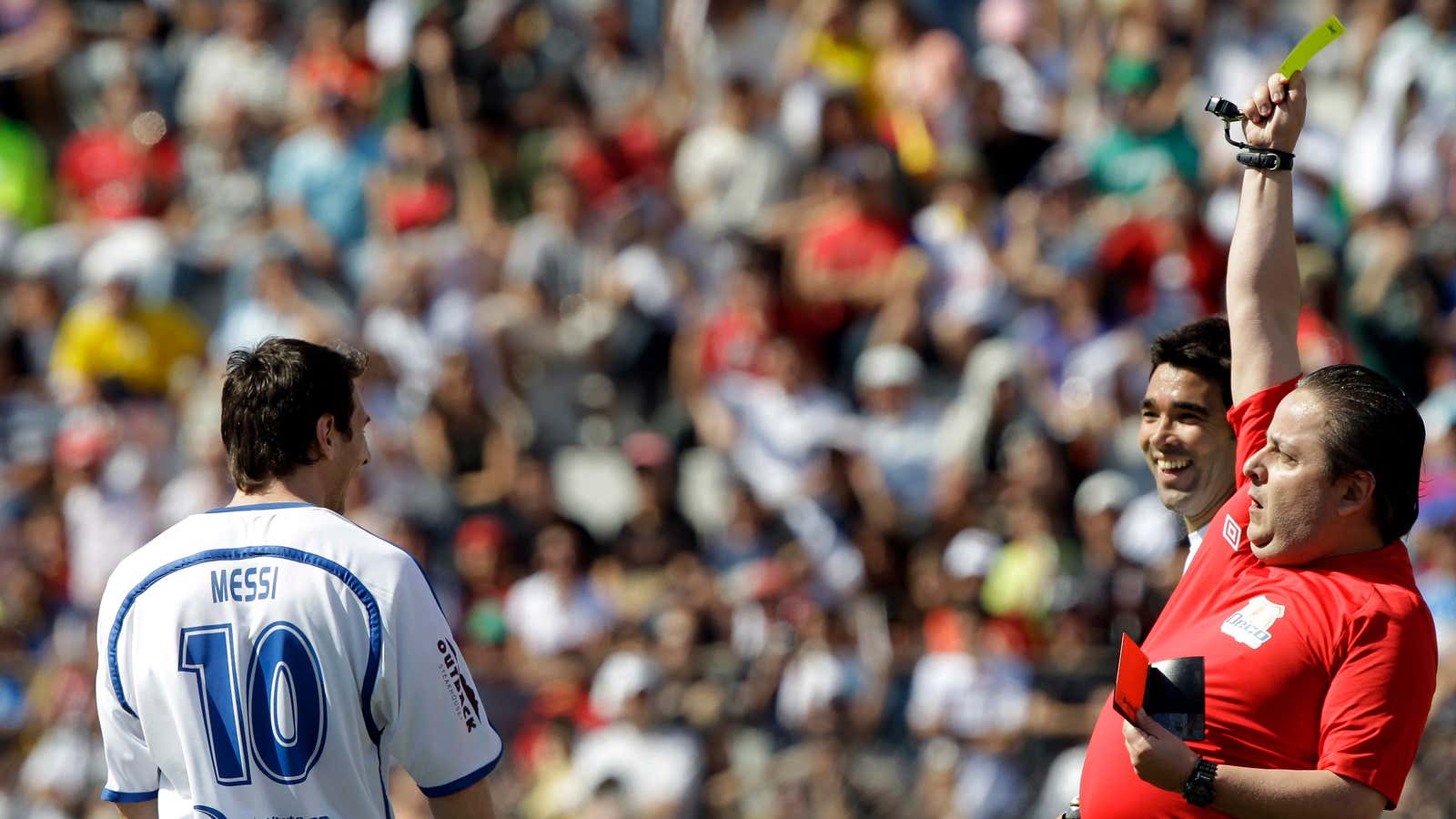When I learned how Apple used a cost-sharing agreement to keep the profits of its research and designs out of the reach of US tax authorities, I thought: Great idea! What if I sold my intellectual property (article ideas, reporting skills, bad puns) to an offshore company, licensed it back, and had Quartz send my salary to the Caymans? In the end, alas, my IP wasn’t valuable enough to be worth the trouble. (Don’t tell my editors).
But Lionel Messi, the Argentine soccer sensation who plays for FC Barcelona, has IP worth at least $21 million a year. That’s the value of his endorsement deals, led by his relationship with Adidas. And according to the Spanish government, he has dodged nearly €4.2 million ($5.5 million) in taxes by using that IP in a very Apple-like way.
Spain accuses Messi and his father, who manages the player’s finances, of selling the rights (link in Spanish) to his brand image to shell companies in tax havens like Uruguay and Belize, and then licensing those rights to the companies and products he endorses. Such a move would shift Messi’s income from Spain, where he lives and pays taxes, to those lower-tax states.
Messi and his father both say the tax arrangements were created by their advisers, deny breaking the law, and promise to clear up the misunderstanding. Messi’s not the only soccer star to get caught up in Europe’s debt-driven push for stricter tax collection, but he has by far the most interesting scheme for minimizing his payments.
In the era of the international sports star, especially in soccer, where the best players frequently play in many countries, global taxation is an interesting dilemma. The US, which goes above and beyond other countries in taxing its citizens’ foreign income, also does its best to tax foreign athletes and entertainers who earn income at US events, like golf tournaments.
Of course, if you’re looking for someone in this story to cry for, it’s clearly Argentina. Since Messi left his fiscally-strapped home country at age 13 to pursue his talents in Europe’s premier soccer leagues, Argentina has failed to collect taxes on the wealth his massive talent has generated. On top of that. he has a mixed record in international play, never quite replicating his professional success despite being on the Argentine team for six international tournaments (one as captain). Maybe that will change during next year’s World Cup, where Messi will again lead the team—presuming he has managed to clear up his tax question without long-term legal entanglements.




